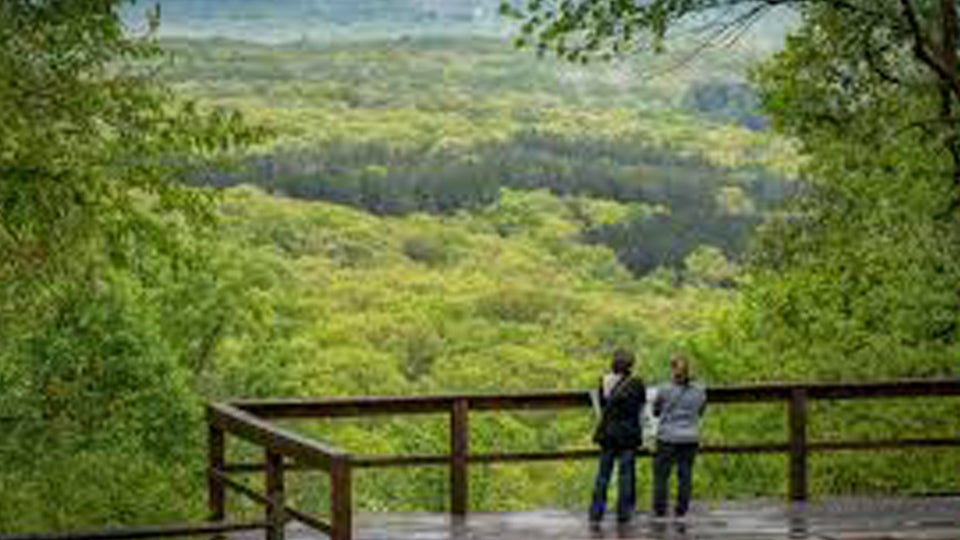Enjoying nature may lessen need for some medications, study finds
(CNN) — Going for a walk in a park or along a lake or a tree-lined space may reduce the need for medication for anxiety, asthma, depression, high blood pressure or insomnia, a new study found.
“Physical activity is thought to be the key mediating factor in the health benefits of green spaces when availability or active use of green space are considered,” said study coauthor Anu Turunen, a senior researcher at the Finnish Institute for Health and Welfare in Helsinki, in an email.
The study found visiting nature three to four times a week was associated with 36% lower odds of using blood pressure pills, 33% lower odds of using mental health medications, and 26% lower odds of using asthma medications.
“The analysis can reveal key associations, but we can’t say for certain whether it was the greenspace proximity or use that led to reduced use of medications,” said Lincoln Larson, an associate professor in the College of Natural Resources at North Carolina State University in Raleigh, who was not involved in the study.
“Perhaps people who were healthier to begin with (and less likely to take prescription drugs) were more likely to get outdoors in the first place,” Larson said via email.
Green and blue space
The study, published Monday in the journal Occupational & Environmental Medicine, interviewed approximately 6,000 random people in three of the largest cities in Finland about their use of green and blue spaces within a kilometer of their homes.
Green spaces included forests, gardens, parks, cemeteries, moors, natural grasslands, wetlands and zoos. Blue spaces included lakes, rivers and the sea.
Prior studies have found people living near green spaces reap significant health benefits. A 2016 study compared the amount of plant life and vegetation near the homes of almost 100,000 women. After eight years, the researchers found having access to the most green space reduced the women’s death rate by 12% — and improved their mental health.
A 2019 study of green spaces around the globe found people who live near them are less likely to die prematurely. Even doctors are beginning to prescribe nature as a treatment for mental health, as CNN Chief Medical Correspondent Dr. Sanjay Gupta explored in an episode of his podcast series, Chasing Life.
Views from home
The new study also investigated the impact of being able to view green or blue spaces from home on the use of medications. Observing nature while indoors didn’t appear to work.
“Just seeing nature didn’t really move the needle, but experiencing it did. Other research points to similar conclusions,” said Larson, who has studied the benefits of public parks across the United States on the well-being of urban dwellers.
“If you want to reap the full health benefits that nature can provide, you have to immerse yourself in those settings,” he said.
While research hasn’t yet been able to show a true association, Larson still believes in the benefits of seeing, as well as experiencing nature.
“If you don’t have access to those places, simply seeing green space (or perhaps even experiencing virtual nature) is better than nothing,” he added.
You might even put a plant on your desk. A 2019 study found taking care of plants in the workplace slightly reduced stress for Japanese workers — unless their plant died. On an objective measurement, 27% of the workers showed a significant decrease in their resting heart rate, according to the study.



